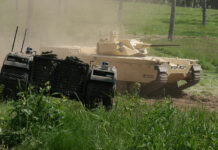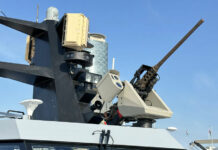Israel: In Search for Winning Strategy (part III) – David Eshel
Retired Lt.-Gen. Moshe Yaalon, former chief of staff considers that solving the Israeli-Palestinian conflict, as the mainstream public opinion predicts, may eventually bring about the rest of the Arab nations to accept Israel’s existence in their midst. It might be somewhat far fetched, but the Israeli-Palestinian conflict is only one of many afflicting the Middle East, and it is by no means the dominant one. According to the general, the central conflict of the Middle East is not territorial but ideological; not about borders but about Islamic Jihadism and Western liberty. No ideology, least of all radical Islam, can be defeated by concessions, which encourage, energize, and inspire Jihadists.
The retired general has aired some of his assessments on Israel’s security on the occasion of the 35th anniversary of the 1973 Yom Kippur War. According to Yaalon, the most important fault-lines of the strife in today’s Middle East are found rather in non-localized conflicts such as pan-national Islamic Jihadism against the West, the Shia-Sunni divide, and the Persian-Arab contest for power and influence. Within Muslim societies, across the region and beyond, there is a struggle between nationalists and Jihadists. Many, if not most, Muslim nations in the Middle East are torn internally, between groups that believe happiness is achievable in this world, and groups who preach martyrdom (istish’had), the killing of infidels, and happiness in “the next world.”
“If the solution to the Israeli-Palestinian conflict were a territorial compromise within Mandatory Palestine, I have no doubt we would have reached this long ago” said General Yaalon. “Instead, from the dawn of Zionism to the present day, the Palestinian leadership has rejected every partition plan proposed, and has reacted violently to all political initiatives seeking a settlement along those lines”. The woeful fact is indeed, that attempts by Israel at peace through territorial concession have been met, again and again, with violence by Palestinians.
Another misconception in Western understanding of the Israeli-Palestinian conflict relates to the economy. The illusion, that a prosperous Palestinian economy would eventually neutralize extreme nationalism and religious fanaticism. But although the PA has received no less than $7 billion from donors in recent years, neither Arafat nor Abbas has managed to improve the basic living conditions of the Palestinian people in any significant way. On the contrary, the Palestinian economic situation has continued to deteriorate constantly, not under the Hamas-ruled Gaza Strip, but in the Fatah controlled, quite peaceful West Bank.
Another misconception concerns the paradigm of the “two-state solution” within the boundaries of former Mandatory Palestine. Under the present status quo such an idea is both irrelevant and dangerous. In fact, there is no Palestinian partner who would be brave enough and willing to accept it as a final settlement.
General Yaalon, who apart from having been chief of staff, also headed the IDF Intelligence Branch, recently presented some of his ideas for new strategy in dealing with the Israeli-Palestinian conflict.
In his view the Israeli-Palestinian conflict is not the core of the Middle East’s instability. The Iranian regime is the main destabilizing force in the Middle East today, Yaalon warns. Since the Islamic Revolution in 1979, Iran has been exporting the ideology behind the rise of Islamic Jihadism, and it remains the base and center of gravity for worldwide Jihadism. “We cannot afford to avoid confronting the Iranian regime. Until it is defeated, there will be no stability in Iraq , Lebanon , the Palestinian Authority, or any other nation in the Middle East”, General Yaalon states, ” at present they feel, in Teheran, like they are winning, as Hezbollah gains power in Lebanon and Hamas is strengthening its grip in Gaza” .
But, the general reminds that the government of the Ayatollahs is not a natural one in Iran , nor does it enjoy wide popular support. In his view, it will not last forever. Economic sanctions are the best tool to encourage those, who are considered to be 70 percent of the Iranian population, who sofar silently, rejects the ayatollahs’ way. Western weakness and lack of determination could discourage these elements from taking action. Indeed, those western nations, who try to avoid economic sanctions, because of their particular economic interests, actually enhance the possibility of a military confrontation with Iran- Yaalon warns.
Some determined action by the West, must however become indispensable, according to Yaalon. The Iranians, the Syrians, and their proxies must be punished by the international community for funding terror and challenging the international order. They have been allowed to nurture international terrorism, develop WMD. Moreover, in light of the ongoing conflict between Sunnis and Shiites throughout our region, Israel and the West can and must find common interests with moderate Muslims.
General Moshe Yaalon concludes: “The struggle against Islamic Jihadism is, in many ways, a contest of wills. As our values and way of life are challenged by Islamic Jihadists, and our legitimacy as a Jewish state is challenged by Arab nationalists, we in Israel must consolidate our belief in our path and its righteousness”.
















